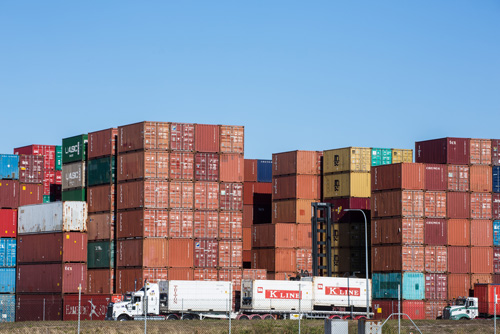Transport economics and modelling
Project title: Economic analysis of supply and logistic chain management and analysis of social, economic and environmental impact of port operations
The Port of Brisbane wants to grow trade through the port in a socially and economically sustainable way, while better understanding its customers and their supply chains. To do that, the Port of Brisbane needs to understand how cargo owners (importers and exporters) manage their supply and logistic chains as well as understand what lies behind their decisions in terms of transport mode choice. This will assist the port in making informed decisions about infrastructure investments that may be necessary to facilitate smoother and potentially cheaper supply and logistic chains for cargo owners (e.g., dedicated rail freight corridor, improvement on the Brisbane Multimodal Terminal (BMT). Furthermore, the port is interested in improving socially and economically sustainable port operations, while increasing its environmental profile in order to gain and maintain public acceptance of current and future port operations and development. Four parts have been identified to this economic analysis: (i) identification of economically optimal modal choice for cargo destined for northern Queensland (road vs. rail vs. sea); (ii) assessment and optimisation of supply and logistics chains for different cargo types traded through the Port of Brisbane; (iii) development of a social, economic and environmental report card; and (iv) assessment of externalities from traffic under alternative intermodal scenarios (e.g., traffic congestion, vehicle emissions, traffic safety measures).
Further information on study options please contact: Prof Carlo Prato (c.prato@uq.edu.au).
Project Title: Modelling freight transport and optimising intermodal infrastructure for improving the competitiveness of the Port of Brisbane
The Port of Brisbane wants to understand its customers better and what drives decisions around intermodal facilities and modes of transport. This project has dual aims. Firstly, it proposes the development, formulation and implementation of freight transport models at both the demand and the network level with the aim of (i) analysing the national supply chain to support marketing more trade through the Port of Brisbane, (ii) understanding the competitive threat posed by mega intermodal and distribution facilities planned in Sydney, and (iii) providing a solution for the intermodal infrastructure for the Port of Brisbane. Secondly, after understanding the economics of road vs. rail vs. sea, this project aims to look at (i) the choice of optimal location and size of distribution centres, (ii) the choice of routing within the supply chain, and (iii) the optimisation of the intermodal infrastructure for the Port of Brisbane. The project exploits synergies with the postdoctoral study of Peggy Schrobback at the School of Economics and the doctoral study of Elnaz Irannezhad at the School of Civil Engineering. Both studies have an interest in modelling the choice behaviour of transport mode and vehicle type from the port by shippers and carriers, with an outlook towards the future option of incrementing coastal shipping.
Further information on study options please contact: Prof Carlo Prato (c.prato@uq.edu.au).

